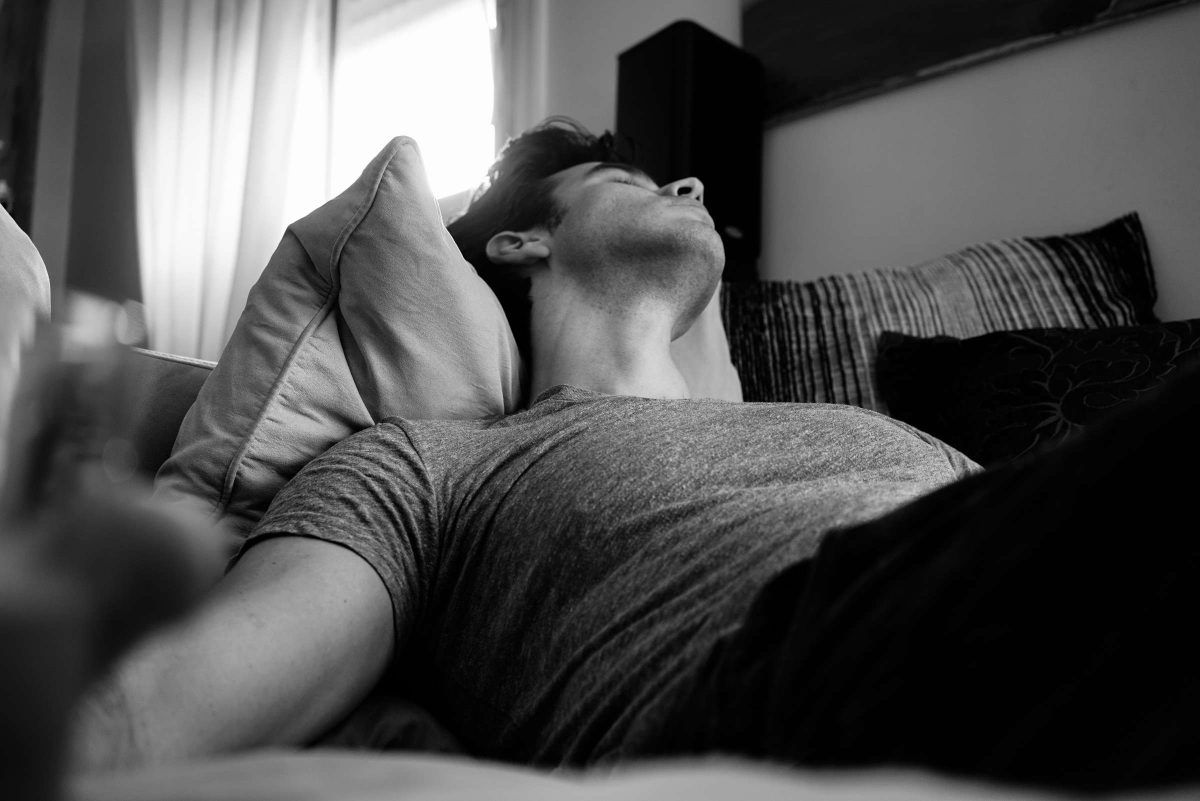For athletes, enough sleep is important. About one quarter of the population suffers with sleep problems. What facts should athletes know?
Sleeping for Athletes
Sport and sleep are closely related. In other words: for effective training, the body needs regeneration through sleep. And conversely, only those who have slept enough will have the energy needed for the next training session.
An ideal sleep rhythm, with which one feels fit and rested in the morning, unfortunately exists with many people only in their dreams: “A quarter of the population suffers from sleep Problems,” the Federal Statistical Office stated in a 2012 survey. Katharina Stingelin, human biologist and sleep physician at the KSM Clinic for Sleep Medicine in Bad Zurzach, assumes about 20 percent today. “However, this refers exclusively to insomnia,” she explains. This term covers problems in falling asleep and staying asleep and early awakening. There are about 80 types of sleep disorders, divided into eight sub-categories. Insomnia is the most widespread and, along with sleep apnea (sleep disorder in which breathing stops and restarts repeatedly), the most common type of sleep disorder.
The fact that sleep has a major impact on the health and psyche of humans becomes clear when one considers which functions are assigned to sleep. Although these have not yet been conclusively researched, it is certain that the body is anything but inactive at night: sleep is a regeneration miracle, the immune system is strengthened, hormones are released and memory is formed. However, it is not unusual for sleep to be induced in many people by chemistry: Around eight percent of the Swiss population takes medication to enable them to sleep. According to Katharina Stingelin, however, this is not normal or physiological sleep.
Sport influences sleep…
Inactive people usually have dificulties sleeping more often than active people. According to Katharina Stingelin, “active” does not automatically mean athletic. She herself recommends that her patients exercise regularly in order to get sleeping problems under control. Whether someone is doing a running workout or simply going for a walk in the fresh air is not important. According to Stingelin, the following should be noted: “Anyone who does exercises should not do them just before bedtime. Exercising in the evening is okay, but the body then needs a few hours to release the adrenaline and calm down after an intense performance”.
That’s why in the evening relaxed endurance training without increasing your pulse too high is recommended. If you do a late workout once a week, for example in a club, and can’t fall asleep afterwards, you don’t yet have any sleep problems. “That is normal and has a completely understandable reason”, says the sleep physician.
Most humans are naturally at their best in the morning around ten o’clock. The body has more testosterone in the morning and therefore also more energy for muscle building. Training before noon is therefore beneficial, although personal factors (e.g. working hours, children starting school, etc.) also need to be taken into account depending on the personal situation. A nap after morning training would be perfect, but most working people rarely allow themselves this.
Although gyms that are open 24 hours a day are helpful for all those people who would otherwise not be able to exercise due to shift work, for example, “muscle training in the middle of the night is against human nature,” says Katharina Stingelin.
For competitive athletes, sleeping problems can be a sign of overtraining. But the mental factor can also play a role when athletes do not sleep at night. A survey by the Federal Office of Sports revealed that one in three Swiss athletes suffered from insomnia or sleep through problems at the 2014 Olympic Games in Sochi.
… and vice versa
Sufficient sleep is an important factor for athletic top performances. The opposite is also true. Chronic lack of sleep is “a performance killer” according to the Federal Statistical Office. More than half of the people who have difficulties sleeping have a low energy and vitality level. Sleep derivation also increases an athletes injury risk.
According to Katharina Stingelin, individual nights with little or poor sleep have little effect on athletic performance (e.g. nervousness before a competition). However, athletes who have troubles sleeping for a long time find it difficult to train. “In most cases, affected individuals are so lethargic that they cannot even think about training.”
Whether and how much training the body can do without sleep is difficult to say, Katharina Stingelin continues. But it is rare that a person does not sleep at all. “People often have the feeling that they haven’t slept all night, but they are usually wrong.” For the sake of the body, however, it should still apply: Anyone who does a lot of training and at the same time suffers from sleeping problems should definitely try to get a grip on them. And only then will intense training be effective again.
This blog post by Sharon Kesper was provided by Fit for Life. Fit for Life is the Swiss magazine for fitness, running and endurance sports. Would you like to read such articles regularly? Then Click here.

